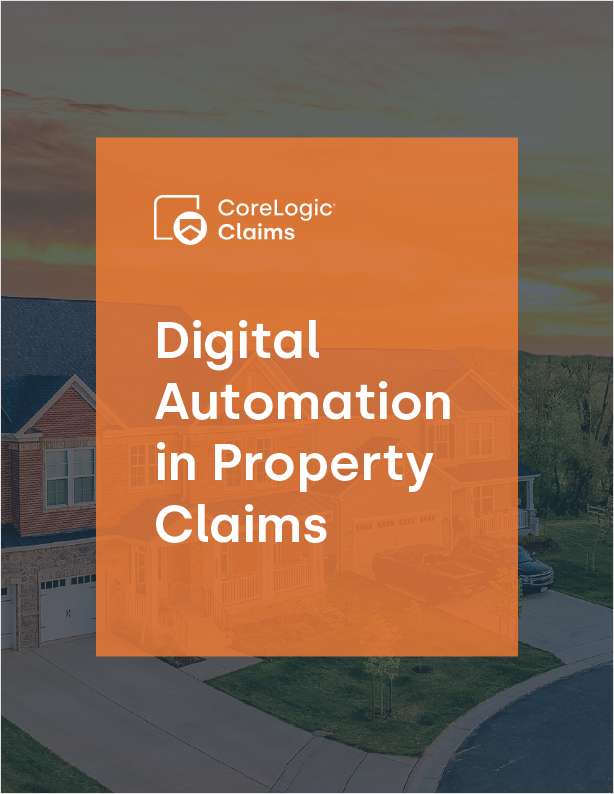Harvey Weinstein and Connecticut's Sentencing Guidelines: An Opportunity for Review
A sentencing judge has very broad discretion in imposing any sentence within the statutory limits. In exercising that discretion he generally is permitted to consider matters that would not be admissible at trial.
March 20, 2020 at 05:26 PM
5 minute read
 Movie mogul and convicted felon Harvey Weinstein, during his trial for sexual assault.
Movie mogul and convicted felon Harvey Weinstein, during his trial for sexual assault.
More than two years after the first allegations against him emerged, Harvey Weinstein was convicted of committing a criminal sex act in the first degree involving one woman, H., in 2006 and rape in the third degree involving another, M., in 2013. He was acquitted of the two more serious charges of predatory sexual assault involving at least two women (H. and S., and M. and S, respectively) and one count of first-degree rape (M.). (The conviction of third-degree rape was as a lesser included offense of the first degree rape charge of which he was acquitted). More than 70 women have accused Weinstein of sexual misconduct. Some testified at the trial; others were interviewed or gave statements that were included in the prosecutor's sentencing memorandum. According to the press accounts of the sentencing the state's attorney's sentencing memorandum detailed additional accounts of Weinstein victims—three dozen uncharged incidents and accusations.
In an unusual move for someone still facing criminal charges, Weinstein spoke at his sentencing hearing, at the conclusion of which Judge James Burke sentenced Weinstein to 20 years on the criminal sex act in the first degree count and three years, to run consecutively, on the rape in the third degree count. The Judge remarked: "This is a first conviction, but it is not a first offense." We know this because a reporter was able to take down that comment by the court. But we don't have access to the sentencing transcripts to know exactly what transpired. Nor do we know how much of the information at sentencing was new to the court and how much had already been introduced during the court of the trial. Therefore, at present we have no way to know whether the trial court imposed the 23 year sentence based on the testimony of H., M., and S; the trial testimony of the uncharged misconduct victims; Weinstein's own misguided statement; the sentencing memo by the prosecutor, information outside the record that was reliable and not materially false; or other victim impact evidence. Consequently, we cannot assess whether Weinstein's due process rights were violated.
A sentencing judge has very broad discretion in imposing any sentence within the statutory limits. In exercising that discretion he generally is permitted to consider matters that would not be admissible at trial—that is, evidence that would be inadmissible for the purpose of determining guilt. Due process does not require information considered by the trial judge prior to sentencing to meet the same high procedural standard as evidence. Sworn and unsworn testimony relative to the circumstances and the defendant's life is permissible.
The trial court's discretion is not, however, completely unfettered. As a matter of due process, information may be considered so long as if it has some minimal indicium of reliability. As defined, reliability means that the judge has a reasonable, persuasive basis for relying on the information. There is, however, no easy formula or threshold inquiry for determining what information considered by a sentencing judge is sufficiently reliable to meet the requirements of due process.
A reviewing court looks to whether a sentencing judge has relied on demonstrably false information and whether the sentencing process created a significant possibility that misinformation "infected the decision." An appellate court adheres to the principal that if the sentencing judge had a reasonable, persuasive basis for relying on the information that he relied upon, it will generally not interfere with his discretion. It's a fairly low bar: only when the information was materially false or unreliable and the trial court substantially relied on the information in determining the sentence will appellate courts intervene.
Courts have even permissibly relied on a defendant's failure to deny the allegations as an important indicium of reliability. When there are still outstanding charges or the defendant expects to appeal the subject conviction, hoping for a new trial, that reliance is suspect. Nevertheless, courts have been loath to require more so as not to chill judges from articulating their reasons, nor to prevent correction when the sentencing judge relied on information that was truly unreliable, inaccurate or patently wrong. We repeat-low bar.
In 1986, the Connecticut Supreme Court in State v. Huey, 199 Conn. 121 (1986), articulated all the aforementioned principles of law. The court has repeated these standards many times, embracing the vagaries and even refusing to overrule or limit Huey. Then in April 2018, the court granted certification in In re Angel M on the following issue: "Should the Supreme Court overrule State v. Huey, 199 Conn. 121, 505 A.2d 1242 (1986), because consideration of a defendant's refusal to admit guilt for any purpose at sentencing is a violation of the defendant's right against self-incrimination?"
Briefs were filed between November, 2018 and January, 2019 and the case was argued in September, 2019. A decision on the certified question may not answer all the parameters outlined in Huey and its progeny, but trials arising out of the #MeToo movement will continue and it would be beneficial to have some of the due process concerns and considerations revisited before too many convictions are put in jeopardy. Whether New York will look to Connecticut's Angel M. for guidance when Weinstein's case gets appealed is anyone's guess depending upon its outcome, but a fresh look at sentencing considerations and what due process entails will be welcome for sure.
This content has been archived. It is available through our partners, LexisNexis® and Bloomberg Law.
To view this content, please continue to their sites.
Not a Lexis Subscriber?
Subscribe Now
Not a Bloomberg Law Subscriber?
Subscribe Now
NOT FOR REPRINT
© 2025 ALM Global, LLC, All Rights Reserved. Request academic re-use from www.copyright.com. All other uses, submit a request to [email protected]. For more information visit Asset & Logo Licensing.
You Might Like
View All
ADVANCE Act Offers Conn. Opportunity to Enhance Carbon-Free Energy and Improve Reliability With Advanced Nuclear Technologies

Trending Stories
- 1States Accuse Trump of Thwarting Court's Funding Restoration Order
- 2Microsoft Becomes Latest Tech Company to Face Claims of Stealing Marketing Commissions From Influencers
- 3Coral Gables Attorney Busted for Stalking Lawyer
- 4Trump's DOJ Delays Releasing Jan. 6 FBI Agents List Under Consent Order
- 5Securities Report Says That 2024 Settlements Passed a Total of $5.2B
Who Got The Work
J. Brugh Lower of Gibbons has entered an appearance for industrial equipment supplier Devco Corporation in a pending trademark infringement lawsuit. The suit, accusing the defendant of selling knock-off Graco products, was filed Dec. 18 in New Jersey District Court by Rivkin Radler on behalf of Graco Inc. and Graco Minnesota. The case, assigned to U.S. District Judge Zahid N. Quraishi, is 3:24-cv-11294, Graco Inc. et al v. Devco Corporation.
Who Got The Work
Rebecca Maller-Stein and Kent A. Yalowitz of Arnold & Porter Kaye Scholer have entered their appearances for Hanaco Venture Capital and its executives, Lior Prosor and David Frankel, in a pending securities lawsuit. The action, filed on Dec. 24 in New York Southern District Court by Zell, Aron & Co. on behalf of Goldeneye Advisors, accuses the defendants of negligently and fraudulently managing the plaintiff's $1 million investment. The case, assigned to U.S. District Judge Vernon S. Broderick, is 1:24-cv-09918, Goldeneye Advisors, LLC v. Hanaco Venture Capital, Ltd. et al.
Who Got The Work
Attorneys from A&O Shearman has stepped in as defense counsel for Toronto-Dominion Bank and other defendants in a pending securities class action. The suit, filed Dec. 11 in New York Southern District Court by Bleichmar Fonti & Auld, accuses the defendants of concealing the bank's 'pervasive' deficiencies in regards to its compliance with the Bank Secrecy Act and the quality of its anti-money laundering controls. The case, assigned to U.S. District Judge Arun Subramanian, is 1:24-cv-09445, Gonzalez v. The Toronto-Dominion Bank et al.
Who Got The Work
Crown Castle International, a Pennsylvania company providing shared communications infrastructure, has turned to Luke D. Wolf of Gordon Rees Scully Mansukhani to fend off a pending breach-of-contract lawsuit. The court action, filed Nov. 25 in Michigan Eastern District Court by Hooper Hathaway PC on behalf of The Town Residences LLC, accuses Crown Castle of failing to transfer approximately $30,000 in utility payments from T-Mobile in breach of a roof-top lease and assignment agreement. The case, assigned to U.S. District Judge Susan K. Declercq, is 2:24-cv-13131, The Town Residences LLC v. T-Mobile US, Inc. et al.
Who Got The Work
Wilfred P. Coronato and Daniel M. Schwartz of McCarter & English have stepped in as defense counsel to Electrolux Home Products Inc. in a pending product liability lawsuit. The court action, filed Nov. 26 in New York Eastern District Court by Poulos Lopiccolo PC and Nagel Rice LLP on behalf of David Stern, alleges that the defendant's refrigerators’ drawers and shelving repeatedly break and fall apart within months after purchase. The case, assigned to U.S. District Judge Joan M. Azrack, is 2:24-cv-08204, Stern v. Electrolux Home Products, Inc.
Featured Firms
Law Offices of Gary Martin Hays & Associates, P.C.
(470) 294-1674
Law Offices of Mark E. Salomone
(857) 444-6468
Smith & Hassler
(713) 739-1250












